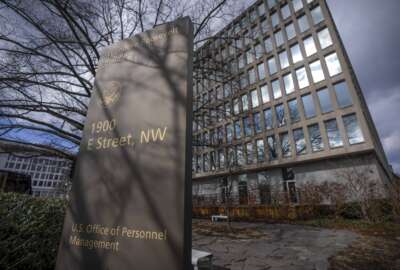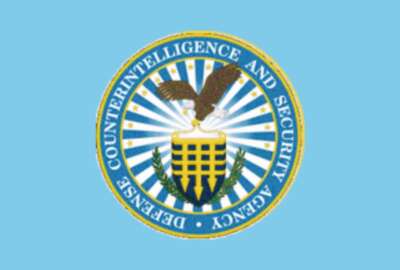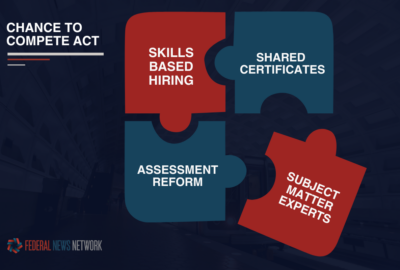How to recruit, retain and engage Millennials in the federal workforce
It's an 80 million-strong generation, made up of people born over the last 30 years or so. Millennials outnumber Baby Boomers, but some say it's a generation of...
wfedstaff | April 17, 2015 8:10 pm
By Ginger Whitaker
Federal News Radio
It’s an 80 million-strong generation, made up of people born over the last 30 years or so. Millennials outnumber Baby Boomers, but some say it’s a generation of potential workforce members that’s unaware of opportunities in federal government.
“We are transforming the workplace, that’s the reality,” Miguel Aviles, chief learning officer of Young Government Leaders, said on Federal News Radio’s FEDtalk radio show. Aviles laid out the case for Millennials and the public sector last week in a discussion with Kimberly Holden, deputy associate director of Recruitment and Hiring, Employee Service with the Office of Personnel Management, and Neil Reichenberg, executive director of the International Public Management Association for Human Resources.
The panel, hosted by Julie Perkins, partner at the law firm, Shaw, Bransford & Roth, broke down how the public sector recruits Millennials, how they can be retained, what they are seeking in the workplace and how they will transition to managerial positions.
How to recruit Millennials:
“Our recruitment skills and our recruitment tactics have had to change, in a way that we’re more using social medial to recruit this generation,” Holden said, explaining how OPM is attempting a different approach in drawing in Millennials. “It’s not, ‘fill out an 80-page application,’ or too many points and clicks with your mouse.”
Reichenberg said there are a lot of similarities in recruiting Millennials on a state and local level. His organization recently did a benchmarking study looking at talent management across close to 500 government organizations. The study found that the most beneficial strategies to use for recruiting Millennials included a strong social media presence, training opportunities, online applications, up-to-date websites and benefits that focus on a work-life balance.
Notable issues with online applications, however, are the often-lengthy processes and the lack of response.
“Government needs to speed up the process,” said Reichenberg, but cautioned that some positions do require extended background checks that take time. Additionally, what happens once an application is submitted, and when do applicants hear back?
“It is frustrating, and I know that we receive complaints from applicants on a daily basis about the status of their applications,” Holden said. “Through hiring reform, there are up to three points of communication where agencies are required to communicate to applicants that they’ve received their application, that they’ve been found qualified or not qualified or not eligible. … We are working with agencies to make sure they are doing their due diligence as far as communicating with applicants.”
However, Aviles said it’s not so much about the lack of communication for Millennials applying for federal jobs, but rather the actual applications.
“We hear from our members is just that — the long process. Not so much the responses, but how long the vacancy announcement is, all the clicks — it is exhausting for the millennial generation. That’s what we hear all the time, and I think that’s one of the reasons that we are so underrepresented in the federal government,” Aviles said.
Another issue to consider for recruitment is that a large portion of Millennials enter the workforce with debt from student loans.
“We do have flexibility for student loan repayment, and the Department of Education also has other programs in place for student loan forgiveness with years of service. There are many agencies, as part of their recruitment tools, they do offer student loan repayment,” Holden said, while Reichenberg added that’s not the case on a state and local level.
Holden also said that there is a lack of awareness about opportunities in federal government among Millennials, who may not know that their skills are needed. She said many Millennials may not even be aware of the missions of agencies or their causes.
“While the government may not be able to compete with salary, how we compete best is through mission,” said Holden.
Citing an engagement survey, Reichenberg said, “We found the top two drivers of engagement for state and local employees was feeling a sense of accomplishment, and serving the public with integrity.” He said they are powerful recruitment messages that government needs to emphasize.
How to retain Millennials:
“There is research out there that says that Millennials will stay two to three years max in your organization,” said Aviles, addressing the issue of retaining Millennials in the workforce. “The problem with that belief is that because managers know they are going to leave, they do not invest in them. They do not provide training, they do not provide rotational assignments, they do not provide that excitement and engagement. So they think, ‘Well, they’re going to leave, let me take advantage of them, and then, see you later.’ And we believe that the expiration date of Millennials can be extended.”
Part of the problem is that employers need to demonstrate that there’s a viable career path, according to Reichenberg. He also said succession planning needs to be a focus as Baby Boomers look to retire, with a concentration on knowledge transfer, mentoring and coaching newer employees so they are prepared to step in and take over managerial roles.
Holden said generational conflicts can arise when it comes to Millennials finding their place in the workforce.
“We have advanced degree professions, people looking to get into the workforce — they are eager, they’re hungry, and they’re energized and they want to come in and they want to make a difference, and they want to do it immediately. But it’s just a matter of making sure the right people are talking to them about the competencies that they need to develop as they progress through the program. And knowing that it’s really not OK that you go above your two bosses to go to the agency head to tell them how you feel about something, unless there is an opportunity,” she said.
To create an environment of open conversation, Reichenberg emphasized constant feedback in order to avoid conflict down the line. This is all part of engaging Millennials in the federal workforce, promoting retention.
The work-life balance:
How important is time away from work? To Millennials, it’s critical.
“For us, work and life balance comes first. I mean, we are young, we want to have fun, we want to enjoy our time and to be able to have memories in the future. So if you are in your job from 7 a.m. to 9 p.m., 8 p.m., that’s a problem,” Aviles said. “And I know the federal sector is pretty good about work and life balance, but when we talk about private sector and other industries, it can be horrible.”
Aviles said there are some generations that simply don’t understand that need. Reichenberg and Holden recalled having come up in rigid work schedules, where balance was not much of a consideration. Despite that background, flexibility can be seen as part of what supports employee engagement.
“I have found that the greatest gift that I can give to our employees at IPMAHR is the gift of time, and I make a point of giving extra days during the year so people have time to spend with their families or to go off on travel or anything that they choose to. I commend those who put work-life balance high on their priority list,” Reichenberg said.
Transitioning managerial roles:
As current leadership within agencies looks ahead to managerial transitions with newer employees, Holden voiced somewhat mixed emotions.
“This generation comes in with an enormous amount of energy, innovation, and they’re looking to jump in with both feet and both hands and to do things right away and make change. Within the federal government structure, I think that is a good thing,” said Holden. “We have to have mentors in place to make sure that they are tending to the care and feeding that this generation needs. They need the structure.”
Reichenberg echoed some concern for transitions, but pointed to one strength, in particular.
“Millennials are, I believe, the most diverse generation in the history of this country. I strongly believe that that diversity should be a strength for organizations,” he said.
RELATED STORIES:
Hiring and managing millennials
Interior touts millennials as the key to diversity
Study: Millennials less trusting than Gen X was
Copyright © 2024 Federal News Network. All rights reserved. This website is not intended for users located within the European Economic Area.





